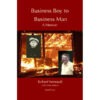Memoir theme is necessary in every memoir. The theme is usually somewhat subtle so that the reader has to work at discovering it—and that can be a joy of reading your story.
Theme is what you are trying to say—whether banal or sublime—beyond the facts. It is the spirit or the soul of your memoir. It is necessarily implicit.
What is your theme?
Writers are sometimes stumped to answer what their theme is when asked to articulate it. This is not unusual. The theme will become more evident as you write more and more. You will find yourself gravitating to certain ideas, developing your story in a certain way, omitting something and developing something else.
Theme determines what, within the bounds of telling the truth, you include in your memoir. When you accept hat your memoir could cover all sorts of material from your life, then it become necessary to choose this over that. In this choice, you articulate the theme.
Theme also determines how the narrator of your memoir presents the story. To support your theme, you will select one narrator or another. While you would be correct in saying, “I am the narrator,” you will also need to determine what part of “you” you have chosen to be the narrator. Is it the tolerant persona or the warrior? Is it the critic or the earth mother? If you are patient you will find a certain voice (often referred to as tone). That voice will also suggest to you what your theme is.
Theme is closely aligned to point of view and is influenced by voice and tone.
In conclusion
Spend time to learn what it is you want to imply in your memoir. It is why you are writing and why your reader is spending time with you.

Monday Focus: Theme is the soul of your story.
Understanding “theme” and its role in your memoir is another core task that will both simplify and clarify your message—i.e., your theme.

The Theme-focused Memoir
While many of the people whom I have helped to write a memoir have come ostensibly to write about their lives – to celebrate some achievement, I would say that many of these people are also writing a mission-driven memoir, a theme-focused memoir.
Behind the desire to tell about their lives, there is some intent to promote a point of view. This comes under many guises. Generally, of course, this point of view is called “theme.”
The theme-focused memoir is the most common model.
Writing a manuscript only of one’s experience—the dates, the facts, the activities—may often not enough to entice the reader—at least, it will not interest the reader who is not family and friends. [Free Membership required to read more. See below. ]
We'd love to have you access this content. It's in our members-only area, but you're in luck: becoming a member is easy and it's free.
Already a Member?
Not a Member Yet?

Shaping Your Theme
It is important to spend some time shaping your theme as the theme is the message—the why—of your writing.
You imbue the whole of your story with your theme, and it, in turn, influences the choice of every element in your story—even when you’re not aware of it. In fact, all writing carries a message from the writer, an index of the motivation of the artist. Theme can be as broad as “There are good guys and bad guys, and you can tell them apart” and as subtle as “I want to tell others what it was like to live at a certain time of my life.”
[Free Membership required to read more. See below. ]
We'd love to have you access this content. It's in our members-only area, but you're in luck: becoming a member is easy and it's free.
Already a Member?
Not a Member Yet?

Three Ways an Inauthentic Memoir Theme Will Trip You Up
As you articulate your memoir theme, ask yourself if this memoir theme is really yours—does it reflect your present understanding of your story and of life itself? Or is it a residue of the accepted “wisdom” of someone else: a parent, another adult figure, society at large?
1) A theme that is authentically yours makes for better writing.
It comes from your center of experience. Writers who recognize, acknowledge, and explore their authentic memoir themes in their writing are more apt to present us with clear, to-the-point stories than those who repeat inherited memoir themes or who think they can ignore the issue of theme.
Early in our lives, you and I were naturally and rightfully the recipients of someone else’s—a parent’s or grandparent’s—understanding and interpretation of life. As long as these interpretations correspond to our own adult views, we can write easily within their context. What often happens, however, is that we continue to espouse a point of view inherited from another without realizing that it has ceased to correspond to our own. When challenged, we will say “Well, I guess I really don’t believe that anymore. Isn’t it something how I wrote (or said) that!”
[Free Membership required to read more. See below. ]
We'd love to have you access this content. It's in our members-only area, but you're in luck: becoming a member is easy and it's free.
Already a Member?
Not a Member Yet?

Seven Reasons for Writing a More Personal Memoir
You want to write your memoir, but you resist getting too personal, going in too deep. In short, writing a more personal memoir.
Your guarded secret that you wanted to have your own business one day or your hope that your father would apologize eventually for his denigration of you—this has happened and it has had a great impact on you. Your even deeper secrets—the sexual orientation that you dared not reveal or your negative self-concept—surely this can’t be the subject of a memoir. How would you live this down? Isn’t it better to stick with the facts and dates? And aren’t these inner realities too personal to impose on others?
1) The more personal your memoir the more universal it is.
[Free Membership required to read more. See below. ]
We'd love to have you access this content. It's in our members-only area, but you're in luck: becoming a member is easy and it's free.
Already a Member?
Not a Member Yet?

Is Theme in a Memoir The Driving Force?
How important is theme in a memoir?
Theme in a memoir is absolutely important!
Here’s is a distinction between a family-focused autobiography and a memoir that, I hope, will help you to appreciate the value and the role of theme in your memoir.
First: a reminder of definitions
People are always wanting to know the difference between an autobiography and a memoir. [Free Membership required to read more. See below. ]
We'd love to have you access this content. It's in our members-only area, but you're in luck: becoming a member is easy and it's free.
Already a Member?
Not a Member Yet?

Is theme important in memoir?
Theme influences choices for every element in the story: plot development, characterization, and setting.
Here’s the shell of a plot: your father was laid off; a difficult time followed for the family; your father received additional training and obtained a different job.
Your treatment of this plot will vary according to your theme.
Let’s suppose the following is your theme: “events whose consequences we can’t understand happen gratuitously to us in our lives, but we can always make the best of things.” In the elaboration of this particular theme (message), you will find it natural to set your father’s being laid off not only with his reaction at the time but also with its consequences. [Free Membership required to read more. See below. ]
We'd love to have you access this content. It's in our members-only area, but you're in luck: becoming a member is easy and it's free.
Already a Member?
Not a Member Yet?

Writing About Religious Beliefs in a Memoir
Writing about religious beliefs can be a quagmire for the memoir writer. How can you write about religious beliefs without sinking your memoir? The answer that I can offer you comes down to the same old suggestion: show and don’t tell.

Two Tips For Conveying Theme Effectively
Underlying all of your stories is its theme. The theme is really a message, the global way in which you understand your story — either in its entirety or in its
